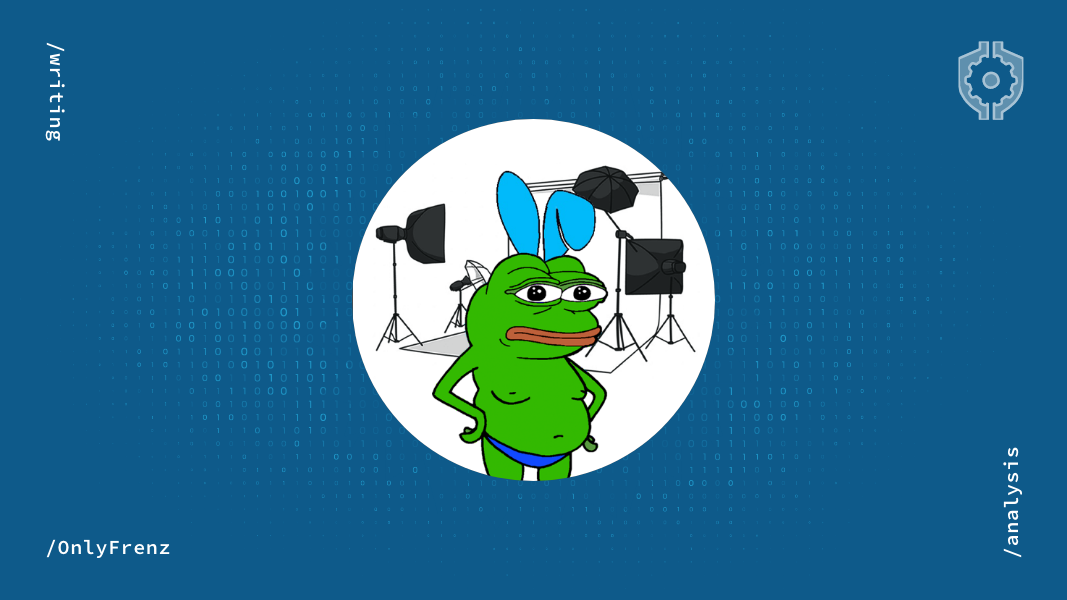OnlyFrenz
Friend.Tech is an influencer's fantasy. But strip away the shills and there are clear question marks about its intentions. Let's explore the true cost of DeFi friendships.

Friend.Tech is divisive.
Some see it as an innovation in the creator economy; others suspect that it’s this quarter’s alpha ponzi.
While it’s clear that influencers are lubing up any poor soul to join their private groups, it might actually be a blessing in disguise for the average degen.
With cash now being a mediator for attention, Friend.Tech essentially becomes a decentralized OnlyFans, and that drastically changes the creator-follower relationship compared to open-access platforms like X/Twitter.
FT Laid Bare
For those playing catch-up, here’s a very quick introduction to Friend.Tech. It’s a SocialFi platform that lets creators and influencers sell access to private groups through tokens. It’s essentially BitClout but without the sneaky launch tactics.
That means if you have a Cobie share (known as a ‘Key’ after a recent rebrand), you get an invite to the inner lair and, presumably, all the alpha.
During this beta test phase, set to last six months, 100,000,000 reward points will be airdropped to users. There’s currently no other information about these beyond speculation.
It’s worth noting that the prices for these Keys are set on an exponential bonding curve. Which is a completely different discussion in terms of economic sustainability, and may have an impact on the rationale behind this article in the future.

The Figures
Influencers wouldn’t be worth their salt if they couldn’t shill Friend.Tech to the far reaches. Since its launch, the platform has bounced off a combination of BASE chain hype and influencer-on-influencer shilling to lay down impressive growth stats.
The first month since launch has seen:
145,000+ total users
$13,500,000+ in fees generated
$6,500,000+ in fees distributed to creators
Transactions have ebbed and flowed in the first month but cumulative users and trading volume are starting to flatten out. An early assumption could be that this is airdrop farming.

Source: Counterplot
Heavy Bondage
Crypto, degens, and influencers are tightly bound together. Mega accounts have the ability to shift market prices. Many of whom just don’t have the credentials to substantiate that kind of power.
Friend.Tech has shades of being a meta ponzi. Influencers are (understandably) getting excited about the platform, and they’re also the loudest voices in the room. Meaning degens are caught in an endless shill cycle.
It’s easy to forget under the guise of terms like ‘SocialFi’ and ‘creator economy’ that the platform is transactional, both in terms of its product and its trading market. Things can get un-friendly quickly and there’s a solid chance some honest degens will get dumped on.
There’s also a question around output. The growth of OnlyFans is a testament to primordial allure of ahegao girls, BDSM madams, or whatever sexual kink someone ascribes to. When the Friend.Tech hype simmers, it will be interesting to see if anon.eth covertly pumping their bags to Key holders in the form of ‘alpha research’ will remain as meaningful.
The crux of this argument is that, while crypto influencers may well be rubbing their hands now, they could have also opened Pandora’s Box. A converse rationale for Friend.Tech is that it could change the influencer-follower relationship and make it more transparent.
Projects like DeBank have recently been experimenting with social scoring so that every clickable post interaction doesn’t only equal positive sentiment. Having Key prices as a barometer for content quality would help degens navigate a crypto market where post engagement and search algorithms can be so easily gamed.
